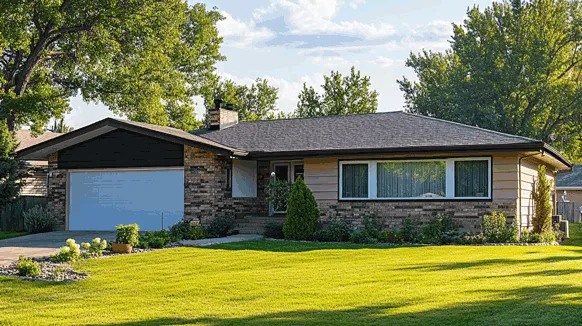
How to Prevent Roof Leaks Before They Happen
Roof leaks may seem small at first, but they can lead to serious water damage, structural damage, and even mold remediation if ignored. In places like Bismarck, ND, where heavy rain, snow, and high winds are normal, being proactive about your roof can save you thousands of dollars. One of the smartest things you can do is choose the best roofing material for extreme weather—that’s how true leak prevention starts.
What Causes Roof Leaks?
Most roofing leaks begin where the roof is weakest—like around roof valleys, pipe boots, chimneys, or old roof flashing. If water slips past these areas, it can lead to water intrusion, pest infestation, and even damage your attic insulation or cooling units. In older homes, damaged tiles, ponding water, or bad roof sealant can also be to blame.
That’s why a regular roof inspection is so important—especially before a major storm hits. A professional roofer knows how to spot early warning signs, seal gaps, and recommend the right fixes.
The Role of Roofing Materials in Leak Prevention
The truth is, no amount of roofing tar or patching can protect a failing roof forever. Preventing leaks starts with using strong, leak-proof roofing materials. Asphalt shingles are popular, but not all are created equal. When thinking about choosing the right material for extreme weather, many homeowners are switching to metal roof flashing, synthetic roof tiles, and high-grade waterproof barriers.
Teamwork Exteriors uses only the best materials from trusted suppliers—whether you're shopping from a building supply store, a residential and commercial building supply outlet, or through our in-house inventory. We help you find options that offer true warranty coverage, energy efficiency, and long-lasting protection.
Why Flashing and Sealants Matter
One of the most overlooked parts of leak prevention is sealing flashing. Flashing—often made from aluminum flashing—protects the joints where different roof surfaces meet. Whether it’s around chimney leaks or near mortar joints, if your flashing is cracked, missing, or poorly installed, water will find its way inside. Using the right roofing solutions, including proper roof sealant, is essential to locking out moisture.
Inspections, Gutters & Smart Maintenance
A quick look in the attic or a check around your ceiling may reveal early signs of a leak—stains, sagging, or even mold. Regular gutters inspection is also critical. Clogged or broken gutters can overflow and send water straight to weak areas of your roof.
Our team always recommends simple, smart roof safety precautions, like clearing debris, inspecting roof valleys, and maintaining attic ventilation to prevent pressure build-up and energy inefficiency. These are steps every homeowner can take—even without a full roof replacement.
Best Roofing Materials for Leak Prevention in Harsh Weather Conditions
In a storm-prone area like Bismarck, choosing durable roofing materials is key to avoiding roof damage, leaks, and costly repairs. Modern metal roofing systems with standing seam designs and interlocking metal panels are highly rated for wind resistance, impact resistance, and water resistance, making them ideal for high-wind areas. Classic materials such as clay tile, Concrete tiles, and clay and concrete tiles remain favorites for their strength and Aesthetic appeal, especially in clay tile roofing styles.
For homes needing lighter solutions, synthetic roofing and slate roofing options—including slate tiles and engineered modified bitumen systems—provide strong wind uplift protection and performance against wind-driven rain and moisture infiltration. With proper structural support, attention to roof edges, and adherence to building codes, homeowners can prevent drainage problems and improve durability even under extreme weather conditions. Many of these options, including cool roofs, are also energy-efficient and require minimal maintenance needs, offering beauty, strength, and sustainability in one roofing system.
For Residential and Commercial Roofing
Whether it’s a home or a business, a leak-proof roof is a must. That’s why Teamwork Exteriors – Finding the best material for extreme weather is more than just a slogan. We’re the go-to roofing contractor for residential and commercial buildings across the region, offering expert advice on Capitol improvements, roof lifespan, and budget-friendly maintenance.
From asphalt shingle roofs to full commercial roofing projects, we help you choose what’s best for your space and climate. Our solutions are built to stand up to the toughest weather and backed by our status as a GAF Master Elite Certified contractor.
Ready to get a reliable, fair roof estimate from a team that Bismarck trusts? Contact Teamwork Exteriors today for expert guidance, trusted roof warranties, and a roofing partner that puts your home first. Call (701)-955-0676 or book your inspection now!



